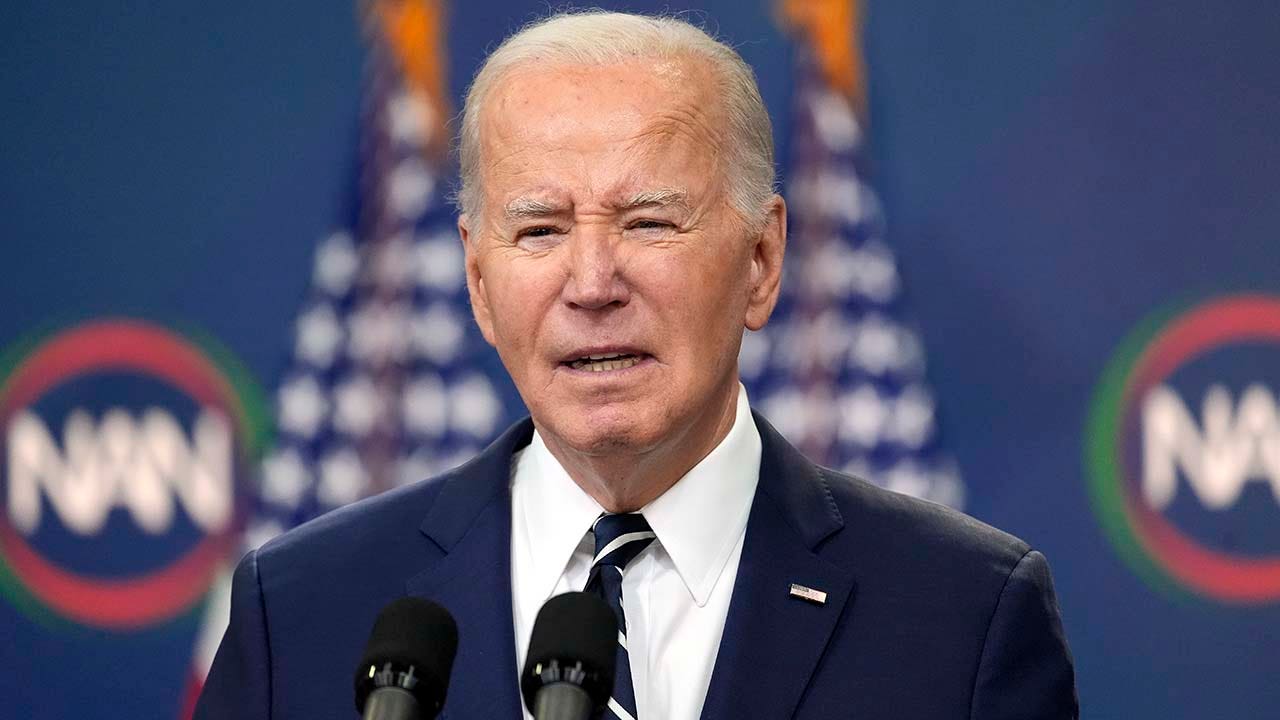Business
Commentary: Need a balm for these troubled times? I recommend the works of P.G. Wodehouse

Seeking succor when the world seems to be closing in on you is a quintessentially human habit. Some people do it by gorging on comfort food like macaroni and cheese, others choose drink, or drugs, or gardening, or the warmth of a puppy.
I always know when I’m feeling blue, because I feel the gravitational pull of my long shelf of P.G. Wodehouse books.
If you’ve never read Wodehouse, I envy you the pleasure of discovering him for the first time. I’m well past that point; some of his stories and novels I’ve read dozens, even hundreds of times, and they can still make me convulse in laughter. More so when the outside world provides little to laugh about.
Evelyn Waugh, who admitted to learning a hell of a lot from Wodehouse, may have put it best: “Mr. Wodehouse’s idyllic world can never stale,” he wrote in a 1961 essay designed in part to defend Wodehouse over the one blot on his life story (more on that in a bit). “He will continue to release future generations from captivity that may be more irksome than our own. He has made a world for us to live in and delight in.”
And what is that world? It’s timeless, and yet dated. Orwell narrowed it down to the Edwardian era — 1901 to 1919 — long before the irruptions of two world wars and the Great Depression. Its inhabitants are those of “there will always be an England” England: stern vicars, timid curates, lords and earls, penniless titled wastrels living on allowances from their uncles, imperious aunts, upper-crust twits.
They’re all presented on the page by an inspired farceur whose exquisitely penned prose seems effortless, but belies the painstaking craftsmanship needed to make his split-second timing come off.
Some Wodehouse lines are like time bombs, detonating with a momentary delay. My favorite comes in an exchange with the soupy Madeline Bassett in “The Code of the Woosters,” when Bertie comes up with a quote he heard from Jeeves, actually the title of a poem by Percy Bysshe Shelley, to describe his friend Gussie Fink-Nottle as “a sensitive plant.”
“Exactly,” Madeline replies. “You know your Shelley, Bertie.”
“Oh, am I?”
Where to start with Wodehouse? He used several framing devices for his novels and short stories. The golf stories are narrated by the “oldest member” of an upper-class golf club who buttonholes unwary younger members to regale them with his memories of golfers he has known.
The peak of this series, to me, is “Farewell to Legs,” featuring a playboy who takes a house in a placid golfing community and discomposes its dour Scottish golfers with his high jinks: “Angus became aware with a sinking heart that here, as he had already begun to suspect, was a life-and-soul-of-the-party man, a perfect scream, and an absolutely priceless fellow who simply makes you die with the things he says.”
Then there are the fish stories told by Mr. Mulliner at his local pub the Angler’s Rest, involving his inexhaustible circle of relatives. To me, the glory of the Mulliner stories are a sequence of three stories — “Mulliner’s Buck-U-Uppo,” “The Bishop’s Move” and “Gala Night,” all related to his brother Wilfred’s invention of a tonic meant to “provide Indian Rajahs with a specific which would encourage their elephants to face a tiger of the jungle with a jaunty sang-froid,” and what happens when unsuspecting users swallow a tumblerful of something that should be taken by the teaspoon.
Some are set in New York and Hollywood, where Wodehouse spent some time writing lyrics for musicals with Jerome Kern and others. (His best-known song is probably “Bill,” from “Show Boat.”)
But at the summit of Wodehouse’s genius are the stories of Bertie Wooster and his “gentleman’s personal gentleman,” or valet, Jeeves. Of the short stories, all narrated by Bertie, to my mind the greatest are a trilogy beginning with “The Great Sermon Handicap,” continuing with “The Purity of the Turf,” and concluding with what may be the single funniest short story ever penned in English, “The Metropolitan Touch.”
Bertie and Jeeves, as the British essayist Alexander Cockburn once asserted, are a pairing as momentous in literary history as Don Quixote and Sancho Panza, or Sherlock Holmes and Dr. Watson. Wodehouse never exhausted the counterpoint between Bertie’s slangy gibbering and half-remembered literary allusions with Jeeves’ carefully modulated responses: “Very well, Jeeves, you agree with me that the situation is a lulu?” “Certainly a somewhat sharp crisis in your affairs would appear to have been precipitated, sir.”
Bertie is both a classic unreliable narrator and a stock comic character given life. Having inherited a fortune from parents who are almost never mentioned, he’s rich enough for financial difficulties to never be a plot obstruction, though he’s always willing to tide over a pal brought low by “unfortunate speculations” at the racecourse. Jeeves is a deus ex machina; we learn almost nothing about him, except for imperturbability and skill at solving the crises that Bertie falls into through his pure cloth-headedness.
Bertie’s romantic relations are entirely sexless, 20th-century echoes of courtly love, though throughout the oeuvre he gets engaged to at least six women by my count. Among them towers the frighteningly domineering Honoria Glossop. (“Honoria, you see, is one of those robust, dynamic girls with the muscles of a welter-weight and a laugh like a squadron of cavalry charging over a tin bridge.”)
Jeeves extricates Bertie from every one of these entanglements, and thankfully so, because every fiancée begins their relationship with the determination to toss Jeeves out on his ear.
Wodehouse aficionados wage a never-ending debate over which Jeeves and Wooster book is his masterpiece, with “The Code of the Woosters” (1938) and “Joy in the Morning” (1946) typically trading the top two spots.
I’m partial to the former, in part because it features the only overtly political character Wodehouse ever devised. He’s Roderick Spode, a would-be British dictator plainly based on the real-life British fascist and Hitler partisan Oswald Mosley.
Spode is the leader of a gang of fascist toughs known as the Black Shorts. “You mean ‘shorts,’ don’t you?” Bertie says when he first hears about Spode. “No,” he’s told, “by the time Spode formed his association, there were no shirts left. He and his adherents wear black shorts.” “Footer bags, you mean?” Bertie asks, a Britishism for football shorts. “How perfectly foul.”
Spode throws his weight around Brinkley Court, the country estate where the story takes place, harrying Bertie endlessly for reasons we don’t need to go into, until Jeeves provides Bertie with a magic word guaranteed to turn dictator Spode into a shrinking mouse. At the climax, Bertie presses his advantage, informing his nemesis:
“The trouble with you, Spode, is that just because you have succeeded in inducing a handful of half-wits to disfigure the London scene by going about in black shorts, you think you’re someone. You hear them shouting ‘Heil, Spode,’ and you imagine it is the Voice of the People. That is where you make your bloomer. What the Voice of the People is saying is: ‘Look at that frightful ass Spode swanking about in footer bags. Did you ever in your puff see such a perfect perisher?’”
It’s no spoiler to tell you that the magic word Jeeves provides to Bertie is “Eulalie.” As for who or what Eulalie is, and why it reduces Spode to jelly, you’ll have to read the book.
That brings us to that one blot on Wodehouse’s life. When World War II broke out, he was living peaceably in the French resort of Le Touquet. When the Nazis came through in 1940 they interned Wodehouse and transported him to Berlin, from which the Germans persuaded him to make a handful of “nonpolitical” radio broadcasts for his British compatriots.
There was an uproar at home. Newspaper columnists condemned Wodehouse as a “Quisling,” libraries took his books off their shelves, there were condemnatory speeches in Parliament.
The truth is that the broadcasts were indeed nonpolitical; if the Germans thought they had scored a propaganda victory it was instantly evident that they were wrong, and they halted the broadcasts after only five. Wodehouse had displayed nothing worse than the stupidity of the innocent. He knew nothing of the political context, much less that his broadcasts came at a moment when the very future of Britain was in question.
But that fit precisely with Wodehouse’s literary landscape. Farce, of course, depends on its characters’ failure to recognize what is near at hand; Wodehouse in his splendid isolation in France and in a bygone fictional Eden was incapable of recognizing the crisis in Britain was so near at hand that his broadcasts would strike hard at his countrymen’s diminishing morale.
Orwell’s opinion of Wodehouse’s attackers was withering. “It was excusable to be angry at what Wodehouse did,” he wrote in 1946, “but to go on denouncing him three or four years later — and more, to let an impression remain that he acted with conscious treachery — is not excusable. Few things in this war have been more morally disgusting than the present hunt after traitors and Quislings. At best it is largely the punishment of the guilty by the guilty. … In England the fiercest tirades against Quislings are uttered by Conservatives who were practicing appeasement in 1938 and Communists who were advocating it in 1940.”
One could go on. The pleasures of Wodehouse are inexhaustible, so I’ll stop here. With some news about Trump’s tariffs threatening to disturb my peace today, and having just finished a rereading of “The Code of the Woosters,” I will share the next few hours with G. Darcy (“Stilton”) Cheesewright, Zenobia Hopwood, Edwin the Boy Scout, Boko Fittleworth and Percy, Lord Worplesdon, and their horseplay in and around Steeple Bumpleigh, Hampshire.
Looking back on the affair and its satisfying resolution, Bertie tells Jeeves, “There’s an expression on the tip of my tongue which seems to me to sum the whole thing up. … Something about Joy doing something.”
“Joy cometh in the morning, sir?”
“That’s the baby. Not one of your things, is it?”
“No, sir.”
“Well, it’s dashed good.”

Business
Commentary: Stephen Miller says Americans will live better lives without immigrants. He's blowing smoke

Stephen Miller, the front man for Donald Trump’s deportation campaign against immigrants, took to the airwaves the other day to explain why native-born Americans will just love living in a world cleansed of undocumented workers.
“What would Los Angeles look like without illegal aliens?” he asked on Fox News. “Here’s what it would look like: You would be able to see a doctor in the emergency room right away, no wait time, no problems. Your kids would go to a public school that had more money than they know what to do with. Classrooms would be half the size. Students who have special needs would get all the attention that they needed. … There would be no fentanyl, there would be no drug deaths.” Etc., etc.
No one can dispute that the world Miller described on Fox would be a paradise on Earth. No waiting at the ER? School districts flush with cash? No drug deaths? But that doesn’t obscure that pretty much every word Miller uttered was fiction.
The leaders in Los Angeles have formed an alliance with the cartels and criminal aliens.
— Trump aide Stephen Miller concocts a fantasy about L.A.
The gist of Miller’s spiel — in fact, the worldview that he has been espousing for years — is that “illegal aliens” are responsible for all those ills, and exclusively responsible. It’s nothing but a Trumpian fantasy.
Let’s take a look, starting with overcrowding at the ER.
The issue has been the focus of numerous studies and surveys. Overwhelmingly, they conclude that undocumented immigration is irrelevant to ER overcrowding. In fact, immigrants generally and undocumented immigrants in particular are less likely to get their healthcare at the emergency room than native-born Americans.
In California, according to a 2014 study from UCLA, “one in five U.S.-born adults visits the ER annually, compared with roughly one in 10 undocumented adults — approximately half the rate of U.S.-born residents.”
Among the reasons, explained Nadereh Pourat, the study’s lead author and director of research at the UCLA Center for Health Policy Research, was fear of being asked to provide documents.
The result is that undocumented individuals avoid seeking any healthcare until they become critically ill. The UCLA study found that undocumented immigrants’ average number of doctor visits per year was lower than for other cohorts: 2.3 for children and 1.7 for adults, compared with 2.8 doctor visits for U.S.-born children and 3.2 for adults.
ER overcrowding is an issue of long standing in the U.S., but it’s not the result of an influx of undocumented immigrants. It’s due to a confluence of other factors, including the tendency of even insured patients to use the ER as a primary care center, presenting with complicated or chronic ailments for which ER medicine is not well-suited.
While caseloads at emergency departments have surged, their capacities are shrinking.
According to a 2007 report by the National Academy of Sciences, from 1993 to 2003 the U.S. population grew by 12%, hospital admissions by 13% and ER visits by 26%. “Not only is [emergency department] volume increasing, but patients coming to the ED are older and sicker and require more complex and time-consuming workups and treatments,” the report observed. “During this same period, the United States experienced a net loss of 703 hospitals, 198,000 hospital beds, and 425 hospital EDs, mainly in response to cost-cutting measures.”
President Trump’s immigration policies during his first term suppressed the use of public healthcare facilities by undocumented immigrants and their families. The key policy was the administration’s tightening of the “public charge” rule, which applies to those seeking admission to the United States or hoping to upgrade their immigration status.
The rule, which has been part of U.S. immigration policy for more than a century, allowed immigration authorities to deny entry — or deny citizenship applications of green card holders — to anyone judged to become a recipient of public assistance such as welfare (today known chiefly as Temporary Assistance for Needy Families, or TANF) or other cash assistance programs.
Until Trump, healthcare programs such as Medicaid, nutrition programs such as food stamps, and subsidized housing programs weren’t part of the public charge test.
Even before Trump implemented the change but after a draft version leaked out, clinics serving immigrant communities across California and nationwide detected a marked drop off in patients.
A clinic on the edge of Boyle Heights in Los Angeles that had been serving 12,000 patients, I reported in 2018, saw monthly patient enrollments fall by about one-third after Trump’s 2016 election, and an additional 25% after the leak. President Biden rescinded the Trump rule within weeks of taking office.
Undocumented immigrants are sure to be less likely to access public healthcare services, such as those available at emergency rooms, as a result of Trump’s rescinding “sensitive location” restrictions on immigration agents that had been in effect at least since 2011.
That policy barred almost all immigration enforcement actions at schools, places of worship, funerals and weddings, public marches or rallies, and hospitals. Trump rescinded the policy on inauguration day in January.
The goal was for Immigration and Customs Enforcement, or ICE, agents “to make substantial efforts to avoid unnecessarily alarming local communities,” agency officials stated. Today, as public shows of force and public raids by ICE have demonstrated, instilling alarm in local communities appears to be the goal.
The change in the sensitive locations policy has prompted hospital and ER managers to establish formal procedures for staff confronted with the arrival of immigration agents.
A model policy drafted by the Emergency Medicine Residents Assn. says staff should request identification and a warrant or other document attesting to the need for the presence of agents. It urges staff to determine whether the agents are enforcing a judicial warrant (signed by a judge) or administrative warrant (issued by ICE). The latter doesn’t grant agents access to private hospital areas such as patient rooms or operating areas.
What about school funding? Is Miller right to assert that mass deportations will free up a torrent of funding and cutting class sizes in half? He doesn’t know what he’s talking about.
Most school funding in California and most other places is based on attendance. In California, the number of immigrant children in the schools was 189,634 last year. The total K-12 population was 5,837,700, making the immigrant student body 3.25% of the total. Not half.
In the Los Angeles Unified School District, the estimated 30,000 children from immigrant families amounted to about 7.35% of last year’s enrollment of 408,083. Also not half.
With the deportation of immigrant children, the schools would lose whatever federal funding was attached to their attendance. Schools nationwide receive enhanced federal funding for English learners and other immigrants. That money, presumably, would disappear if the pupils go.
What Miller failed to mention on Fox is the possible impact of the Trump administration’s determination to shutter the Department of Education, placing billions of dollars of federal funding at risk. California receives more than $16 billion a year in federal aid to K-12 schools through that agency. Disabled students are at heightened risk of being deprived of resources if the agency is dismantled.
Then there’s fentanyl. The Trump administration’s claim that undocumented immigrants are major players in this crisis appears to be just another example of its scapegoating of immigrants. The vast majority of fentanyl-related criminal convictions — nearly 90% — are of U.S. citizens. The rest included both legally present and undocumented immigrants. (The statistics comes from the U.S. Sentencing Commission.)
In other words, deport every immigrant in the United States, and you still won’t have made a dent in fentanyl trafficking, much less eliminate all drug deaths.
What are we to make of Miller’s spiel about L.A.? At one level, it’s echt Miller: The portrayal of the city as a putative hellscape, larded with accusations of complicity between the city leadership and illegal immigrants — “the leaders in Los Angeles have formed an alliance with the cartels and criminal aliens,” he said, with zero pushback from his Fox News interlocutor.
At another level, it’s a malevolent expression of white privilege. In Miller’s ideology, the only obstacles to the return to a drug-free world of frictionless healthcare and abundantly financed education are immigrants. This ideology depends on the notion that immigrants are raiding the public purse by sponging on public services.
The fact is that most undocumented immigrants aren’t eligible for most such services. They can’t enroll in Medicare, receive premium subsidies under the Affordable Care Act, or collect Social Security or Medicare benefits (though typically they submit falsified Social Security numbers to employers, so payments for the program are deducted from their paychecks).
A 2013 study by the libertarian Cato Institute found that low-income immigrants use public benefits for which they’re eligible, such as food stamps, “at a lower rate than native-born low-income residents.”
If there’s an impulse underlying the anti-immigrant project directed by Miller other than racism, it’s hard to detect.
Federal Judge Maame Ewusi-Mensah Frimpong, who last week blocked federal agents from using racial profiling to carry out indiscriminate immigration arrests in Los Angeles, ruled that during their “roving patrols” in Los Angeles, ICE agents detained individuals principally because of their race, that they were overheard speaking Spanish or accented English, that they were doing work associated with undocumented immigrants, or were in locations frequented by undocumented immigrants seeking day work.
Miller goes down the same road as ICE — indeed, by all accounts, he’s the motivating spirit behind the L.A. raids. Because he can’t justify the raids, he has ginned up a fantasy of immigrants disrupting our healthcare and school programs, and the corollary fantasy that evicting them all will produce an Earthly paradise for the rest of us. Does anybody really believe that?
Business
Musk says he will seek shareholder approval for Tesla investment in xAI

Tech billionaire Elon Musk said he would like Tesla to invest in his artificial intelligence company xAI.
While Musk is considering the relationship between several of his businesses, he said on X that he does not support a merger between Tesla and xAI.
“If it was up to me, Tesla would have invested in xAI long ago,” Musk wrote on X on Sunday. “We will have a shareholder vote on the matter.”
xAI is the company behind the controversial chatbot Grok, which is available on X and also used in Teslas delivered on or after July 12. Grok came under fire earlier this month for praising Adolf Hitler and making antisemitic comments.
The AI company apologized for the chatbot’s behavior, saying that a coding problem temporarily made Grok susceptible to extremist views posted on X.
Earlier, Grok had contradicted itself while sharing information about the deadly flash floods that killed at least 130 people in Texas this month. The bot blamed President Trump for the flooding, but then backtracked and understated the death toll.
Musk is scrambling to keep up in the AI race after helping launch OpenAI with Sam Altman in 2015, the company behind the wildly popular chatbot ChatGPT, which helped spur on the current AI craze. Musk left OpenAI in 2018 and is now entangled in legal battles with the company.
In March, xAI acquired X in an all-stock transaction that valued the artificial intelligence company at $80 billion and the social media platform at $33 billion.
Musk scored a victory for Grok on Monday, when xAI announced “Grok for Government” and a contract with the U.S. Department of Defense.
After a disruptive stint in the Trump administration that sent Tesla shares stumbling, Musk formally stepped down from his role in the federal government in May. He has since been feuding with the president, further risking Tesla’s reputation, according to some experts.
Tesla shares rose slightly Monday after Musk’s posts about Tesla’s possible investment in xAI. The shares have fallen more than 16% this year. The company’s profit plunged 71% in the first quarter.
Tesla delivered 384,122 vehicles in the second quarter through June, down 13% from 443,956 deliveries a year ago.
Its shares rose more than 1% Monday.
Business
'Superman' rescues DC at the box office with a $122-million debut

James Gunn’s “Superman” soared to the top of the box office this weekend, giving Warner Bros.’s DC Studios much-needed momentum in the superhero genre after a string of underperforming movies.
“Superman,” which stars David Corenswet as the Man of Steel, hauled in a robust $122 million in the U.S. and Canada. Globally, “Superman” brought in a total of $217 million.
The movie was a big swing for Burbank-based Warner Bros. and DC, costing an estimated $225 million to produce, not including substantial spending on a global marketing campaign.
“Superman” benefited from mostly positive critics reviews — the movie notched a 82% approval rating on aggregator Rotten Tomatoes. Moviegoers liked it too, indicated by an “A-” grade from polling firm CinemaScore and a 93% positive audience rating from Rotten Tomatoes.
The performance for “Superman” fell short of expectations from some analysts, who had projected an opening weekend of $130 million. Industry observers attributed that to heavy competition from other blockbusters, including Universal’s “Jurassic World Rebirth” and Apple and Warner Bros.’ “F1 The Movie.”
Shortly before its release, “Superman” came under fire from right-wing commentators, who criticized comments Gunn made to the Times of London about how Superman (created by a Jewish writer-artist team in the late 1930s) is an immigrant and that he is “the story of America.”
“If there’s any softness here, it’s overseas,” said industry analyst and consultant David A. Gross in his FranchiseRe newsletter, after describing the domestic opening as “outstanding” for a longrunning superhero franchise.
The movie generated $95 million outside the U.S. and Canada.
Analysts had raised questions about whether Superman’s reputation for earnestly promoting truth, justice and the American way would still appeal to a global audience, particularly as other countries have bristled at the U.S. tariff and trade policies enacted by President Trump.
“Superman has always been identified as a quintessentially American character and story, and in some parts of the world, America is currently not enjoying its greatest popularity,” Gross said.
The movie’s overall success is key to a planned reboot and refresh of the DC universe. Gunn and producer Peter Safran were named co-chairmen and co-chief executives of DC Studios in 2022 to help turn around the Warner Bros.-owned superhero brand after a years-long rough patch.
While 2013’s “Man of Steel,” directed by Zack Snyder, and 2016’s “Batman v Superman: Dawn of Justice” each achieved substantial box office hauls, they did not receive overwhelmingly positive reviews. 2017’s “Justice League,” which was intended to be DC’s version of Marvel Studios’ “Avengers,” was a critical and commercial disaster for the studio.
More recently, films focused on other DC characters such as 2023’s “Shazam! Fury of the Gods,” “The Flash” and last year’s “Joker: Folie à Deux” struggled at the box office.
With Gunn and Safran at the helm, the pair are now tasked with creating a cohesive vision and framework for its superhero universe, not unlike its rival Marvel, which has long consolidated control under president Kevin Feige (though its films and shows are handled by different directors).
Starting the new DC epoch with Superman also presented its own unique challenges. Though he is one of the most recognizable superheroes in the world, Superman’s film track record has been a roller coaster. Alternatively sincere, campy or gritty, the Man of Steel has been difficult for filmmakers and producers to strike the right tone.
Gunn’s version of “Superman” — still mostly sincere but a touch of the filmmaker’s signature goofy humor — worked for critics and audiences. It was a tall order, considering some fans still hold Richard Donner’s 1978 “Superman,” starring Christopher Reeve, as the gold standard.
“Pinning down ‘Superman’ has been a challenge,” said Paul Dergarabedian, senior media analyst at Comscore. “It’s been like Kryptonite for years for many filmmakers and producers to get it right.”
“Superman” bumped “Jurassic World Rebirth” to second place, where it collected $38.8 million domestically over the weekend for a total of $231 million so far. “F1,” Universal’s “How to Train Your Dragon” and Disney-Pixar’s “Elio” rounded out the top five at the box office this weekend.
Later this month, another major superhero movie will enter the summer blockbuster marketplace: “The Fantastic Four: First Steps,” from Walt Disney Co.-owned Marvel Studios.
-

 Culture1 week ago
Culture1 week agoTry to Match These Snarky Quotations to Their Novels and Stories
-

 News5 days ago
News5 days agoVideo: Trump Compliments President of Liberia on His ‘Beautiful English’
-
Business1 week ago
Companies keep slashing jobs. How worried should workers be about AI replacing them?
-

 News1 week ago
News1 week agoTexas Flooding Map: See How the Floodwaters Rose Along the Guadalupe River
-
Finance1 week ago
Do you really save money on Prime Day?
-

 Technology1 week ago
Technology1 week agoApple’s latest AirPods are already on sale for $99 before Prime Day
-

 News5 days ago
News5 days agoVideo: Clashes After Immigration Raid at California Cannabis Farm
-

 Politics1 week ago
Politics1 week agoJournalist who refused to duck during Trump assassination attempt reflects on Butler rally in new book















